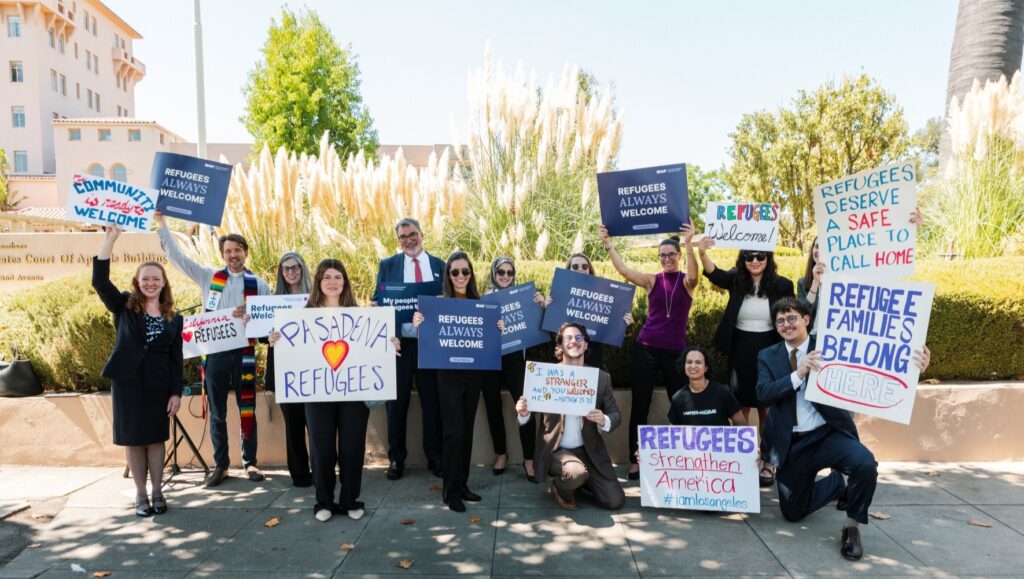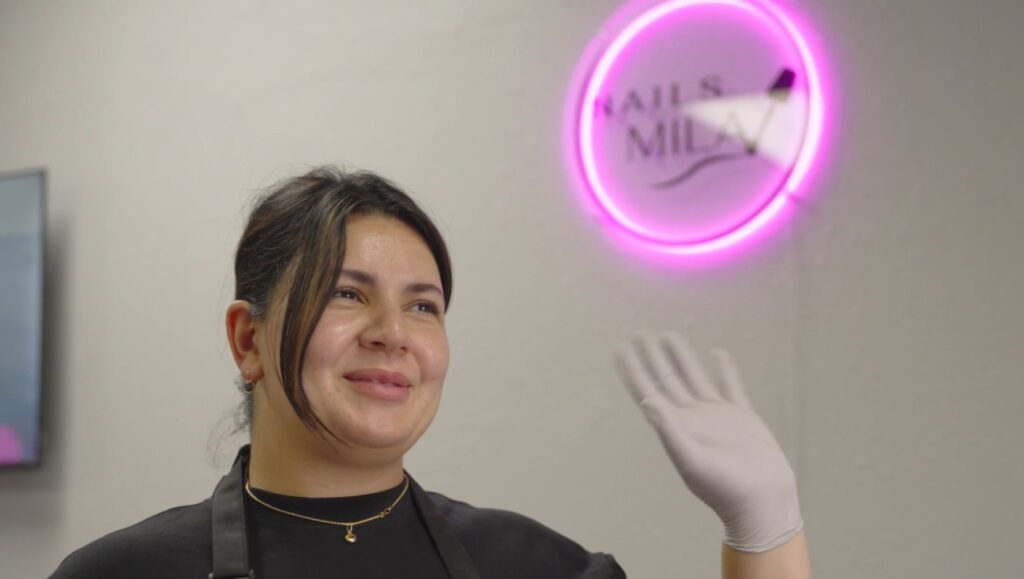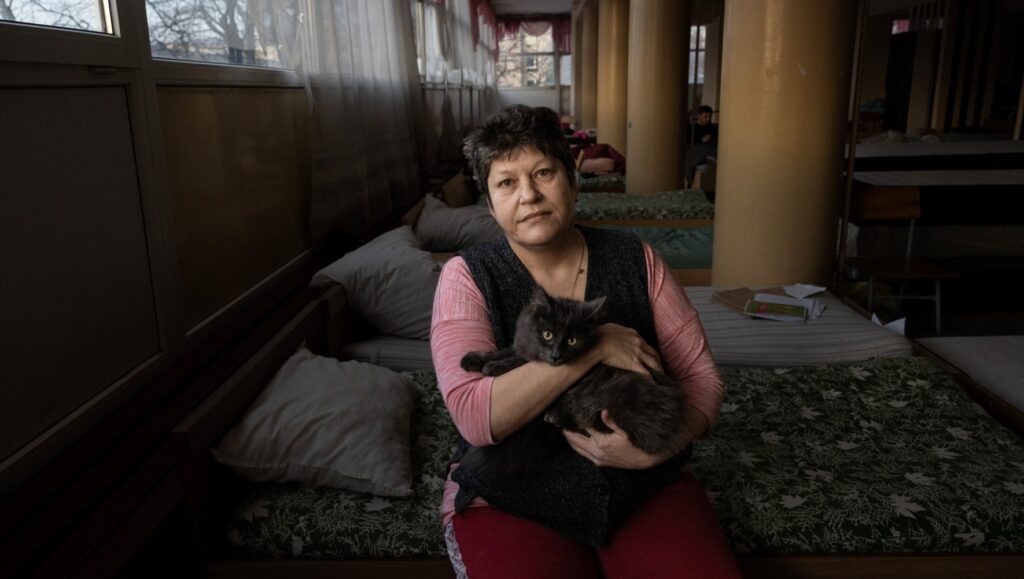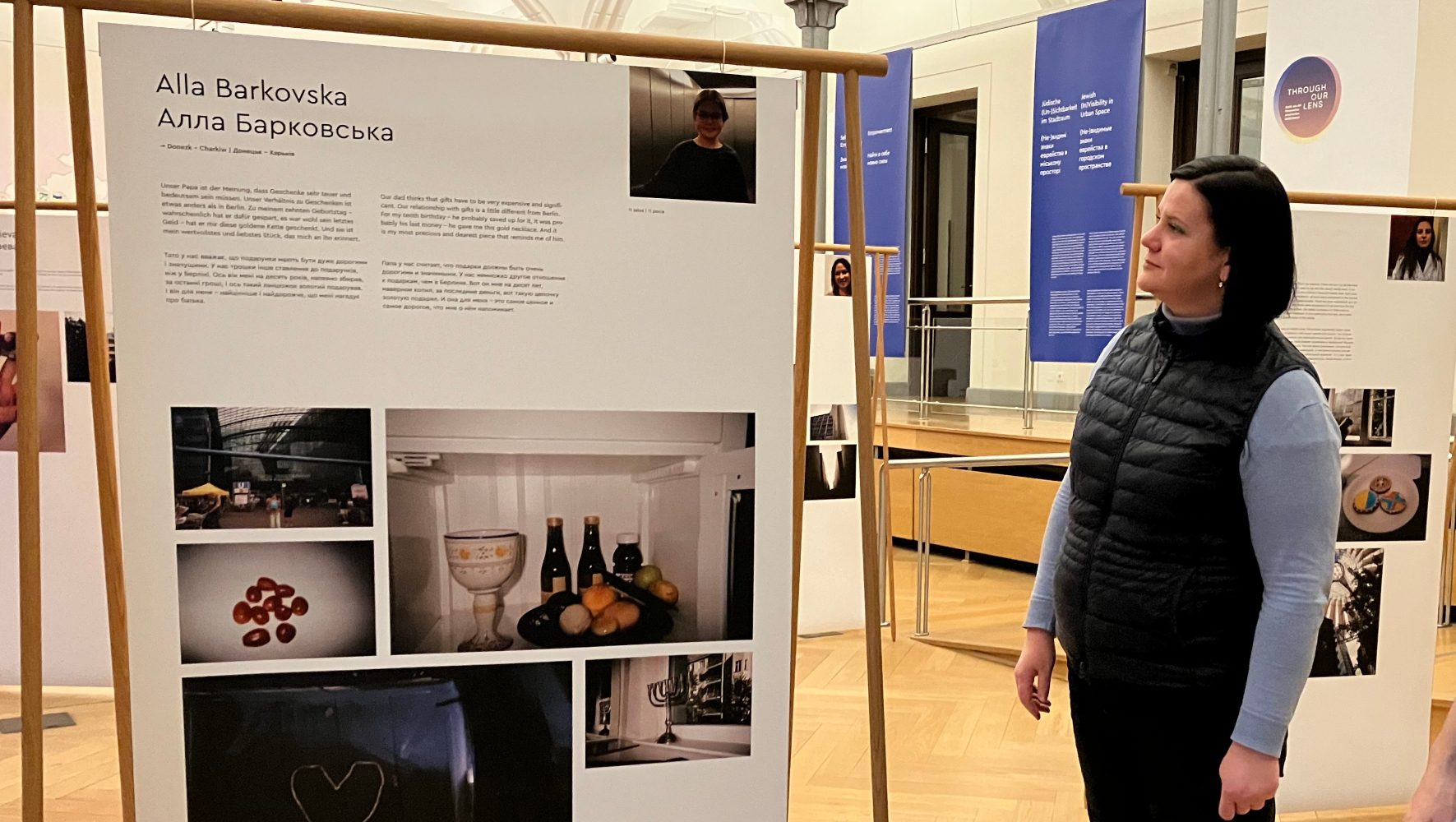
Tetiana Borodina, a Ukrainian refugee living in Berlin, views a display at the Through Our Lens exhibition at the Centrum Judaicum in Berlin, Germany, on December 8, 2023. (Zhanna Veyts/HIAS)
BERLIN — One of the first things that Tetiana Borodina noticed about life in Germany was all the mail. Each day, the letter carrier would deliver a batch of envelopes — bills, forms, advertisements, and the like — to her apartment in Berlin, creating a pile that she would then sort through. Their presence might have seemed totally unremarkable. But for Borodina, they exemplified the odd, unfamiliar customs of her new country.
“I just couldn’t believe that there was so much paperwork!” she said. “In Ukraine, we didn’t have this.”
Borodina took a photo of the envelopes, arranged haphazardly on her kitchen table. That photo, along with a handful of others that she took of daily life in her adopted country, is now on display at Through Our Lens, a remarkable photo exhibition currently on display at Berlin’s Centrum Judaicum. The exhibition features over 90 photographs taken by 18 Jewish women and children who fled war in Ukraine in 2022 and were resettled in Germany’s capital. None of the participants are professional photographers — which was precisely the point.
Until February 2022, the month that everything changed, Borodina lived and worked in Kharkiv, a city in northern Ukraine located near the Russian border. When war reached the city, there was no choice but to flee. Borodina and her daughter boarded a train for a 12-hour journey west to Poland. To avoid detection, the train remained dark throughout the entire trip. Even the girl knew that she had to remain silent. Later, after boarding a bus, the sound of workers stacking wooden crates loaded with food — slap slap! — startled her daughter.
“Where do we run?” she asked her mother.
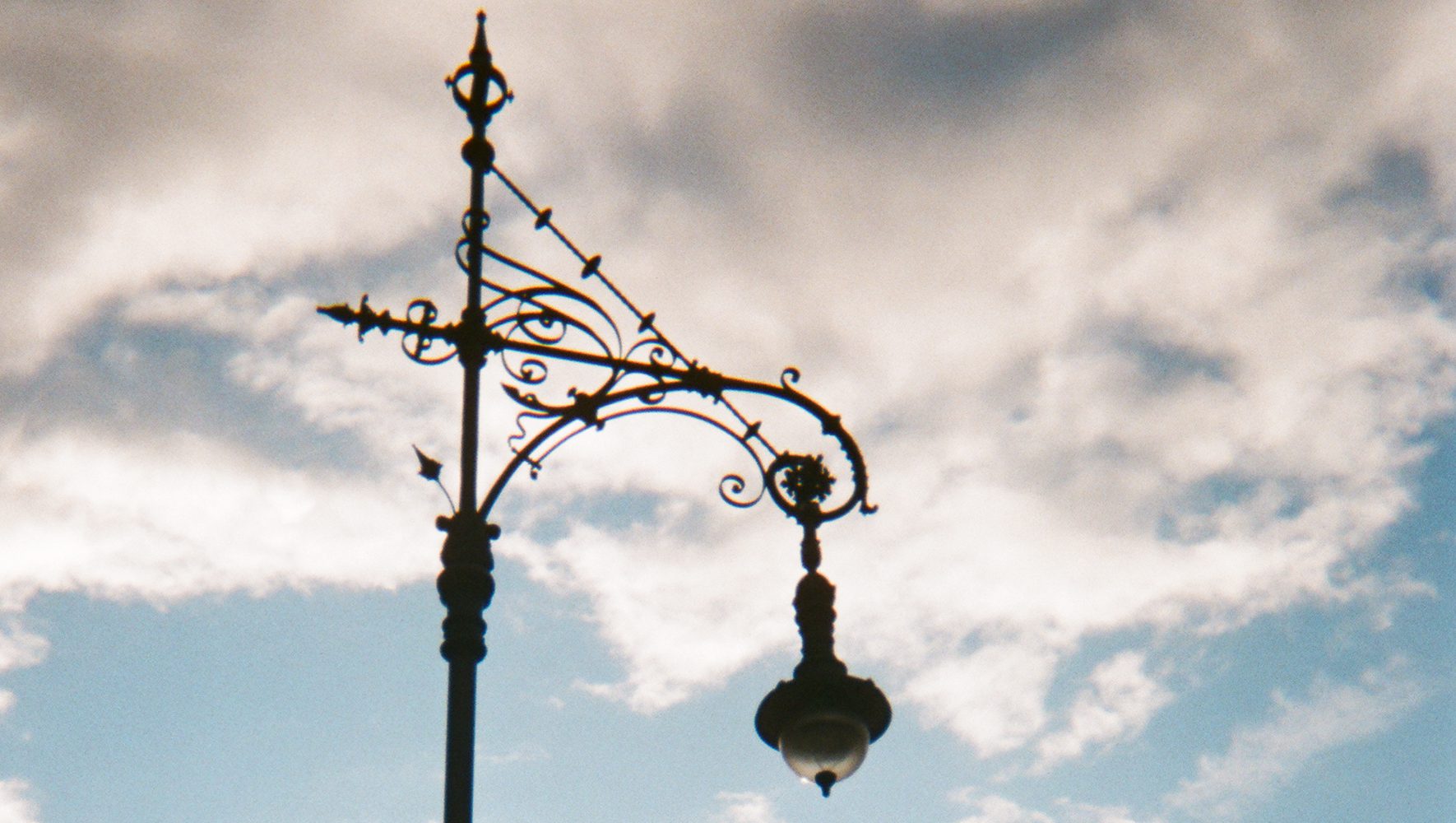
A latern in Berlin photographed by Elena Kartzhniuk, a Ukrainian refugee. (Courtesy of Through Our Lens)
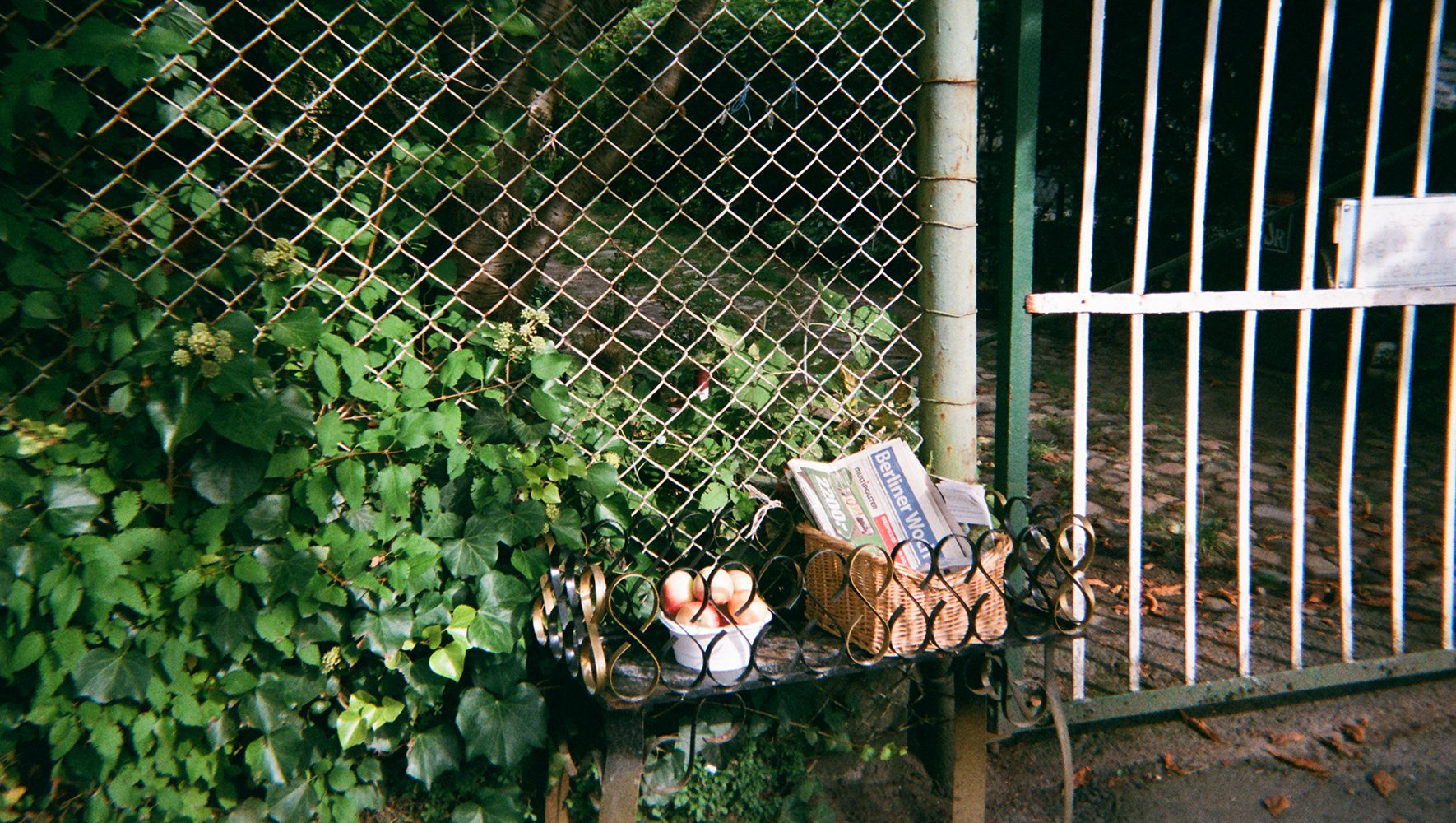
A photograph of daily life in Berlin by Iryna Vostrykova, a Ukrainian refugee. (Courtesy of Through Our Lens)
Life in Germany took away the immediate danger of war. But it presented the family with a fresh set of challenges. Where would they live? Where would Borodina’s daughter go to school? How would they navigate daily life in an unfamiliar country where they did not speak the language?
The outbreak of full-scale war in Ukraine provoked an outpouring of support across Europe. In Germany, individuals and families came forward to volunteer their time, energy, and expertise to assist the influx of Ukrainian refugees. But few of the volunteers knew what to do.
“They had great intentions, they really cared, and they wanted to do things right,” said Liora Jaffe, a senior program manager for community engagement at HIAS Europe. “But there’s so much to know. There were issues like mental health support and language barriers that they weren’t able to address without help.”
In March 2022, HIAS Europe began organizing training sessions across Europe to organize groups of volunteers into formal Welcome Circles, modeled after the private refugee sponsorship model pioneered by HIAS and other organizations in the United States to assist Afghan refugees after the fall of Kabul in 2021. Welcome Circle participants now comprise a network across the continent to work with refugees, support one another, and share best practices. Together, they help refugees to avoid the cycle of dependency that often characterizes traditional resettlement support.
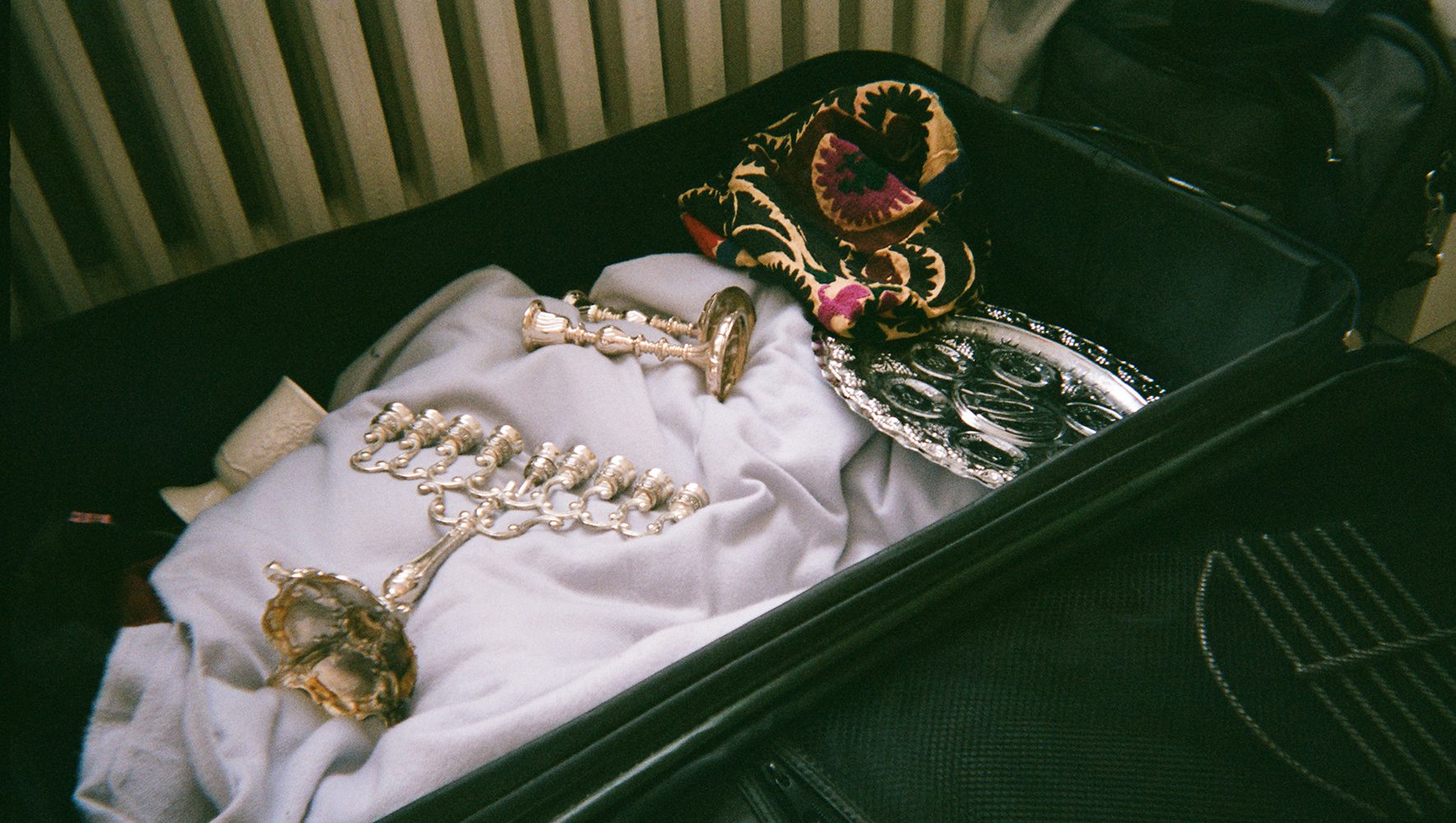
Items used to celebrate Hanukkah photographed by Daria Starodubtseva, a Ukrainian refugee in Berlin. (Courtesy of Through Our Lens)
Among the attendees at the training sessions were members of the Jewish Masorti community in Berlin. One was Inessa Dolinskaia, an immigrant and a photographer who became a Welcome Circle coordinator. She was perfectly placed to enlist the recent Ukrainian refugees to participate in the project that blossomed into Through Our Lens. The program, she felt, was well-positioned for helping refugees participate in activities that help them engage with community members and broader German society.
“I’d been working to help people get their footing here from day one,” she said. “My phone rings with inquiries of every sort at all hours. But I knew people needed something more than answers to logistical questions. They need something for the soul, too.”
Another participant in the exhibition was Elena Katarzhniuk. For Elena, the arrival of full-scale war in Odesa, her home in southwest Ukraine, came disguised as construction noises. But soon reality intruded. Like Borodina, she fled west with her children — her husband, as with many Ukrainian men, remained home. Eventually, she reached Berlin. Life was difficult at first. Unable to find housing, she and her children spent more than a year at a hotel. She also struggled to find work. But a Welcome Circle assisted in numerous ways. Participants helped enroll Katarzhniuk’s daughters in school right away, freeing up Katarzhniuk to get her new life in order. She began to study German and pursue job training opportunities and had time to complete paperwork that can confound newly arrived refugees.
“Berlin is like Odesa, everything is different,” she wrote in the exhibition’s catalogue. “You go somewhere, you find yourself in a new modernized piece of the city, and then you wander somewhere else and find yourself in an old city.”
Her photos included in the exhibition reflect this mix of old and new. One centers an old-fashioned streetlamp, stark against the cloudy sky — an image that could have emerged a century ago. Another shows the window of a small store, with the English words “luxury fetish lifestyle” printed above a mannequin. Absent in Katarzhniuk’s photographs — or the others featured in Through Our Lens — are the scenes of Berlin most familiar to sightseers. This was no accident. By focusing on the everyday, the exhibition presents its refugee participants as curious individuals with unique perspectives, in contrast to images of suffering masses so common in media portrayals of the displaced. And to see this exhibition at Berlin’s New Synagogue, a building greatly damaged during the Nazi era, is to be reminded of how refugees like Katarzhniuk and Borodina have breathed new life into the city’s Jewish community.
“Berlin is like Odesa, everything is different."Elena Katarzhniuk, Through Our Lens participant
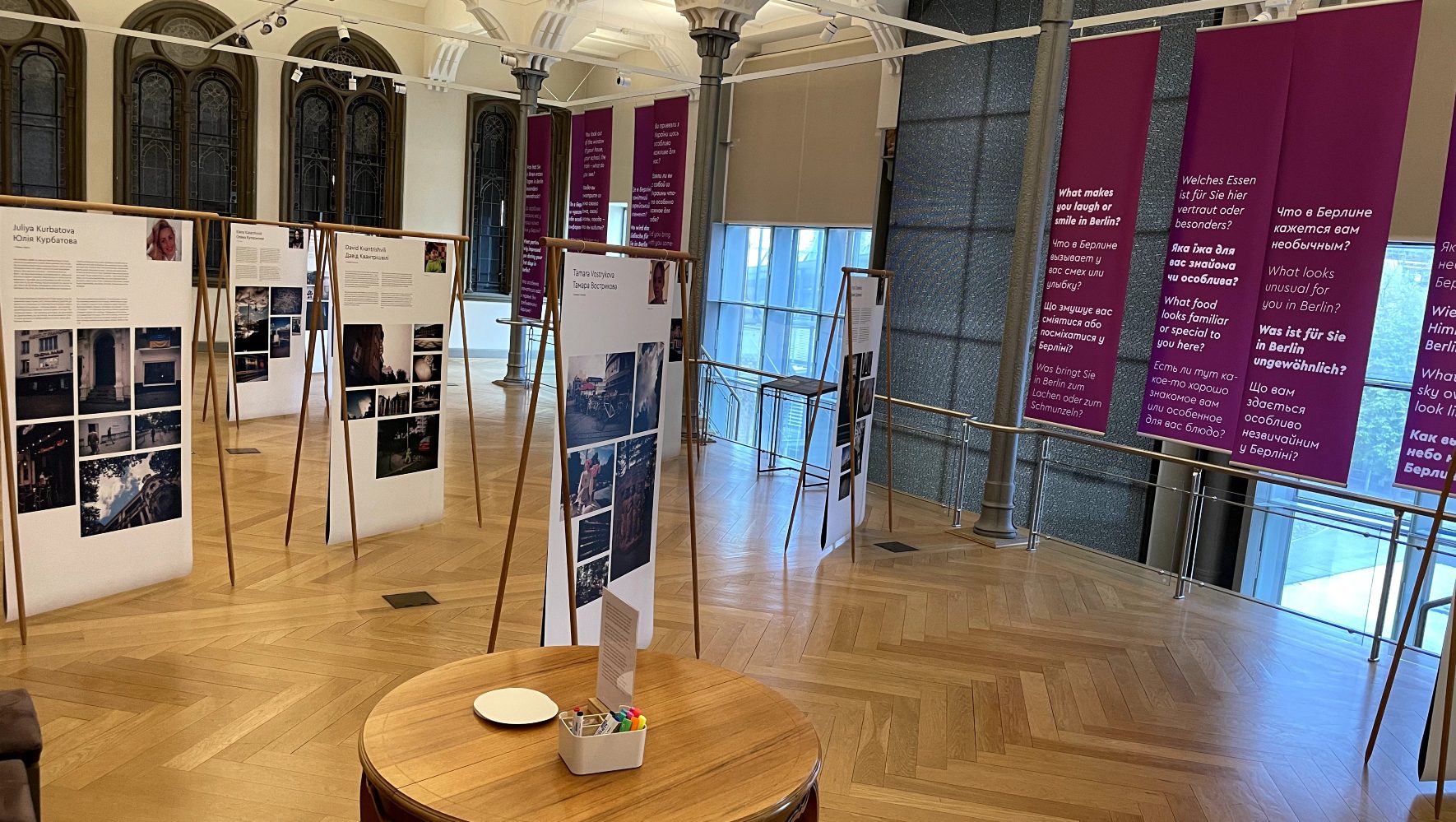
The photos taken by Ukrainian refugee women and children were arrayed on placards at Centrum Judaicum, located at Berlin’s New Synagogue. (Courtesy of Through Our Lens)
As they approach the two-year anniversary of their migration, Borodina and Katarzhniuk have struggled to establish themselves in their new home. Their children have settled into school, learning German and making friends. But their mothers, who each had thriving careers in Ukraine, have yet to find their professional footing in Germany — underscoring the difficulty recent refugees face in finding good jobs.
In addition, memories of home remain a fresh wound. When Katarzhniuk speaks to her mother in Odesa, their conversations are often interrupted by the sound of drones overhead. Recovering from this ordeal will not happen overnight. “People in Germany point out how I’m always smiling,” she said. “But I don’t tell them how I feel devoid of emotion.”
Through Our Lens will be on display at the Centrum Judaicum at the New Synagogue in Berlin until May 5, 2024.
